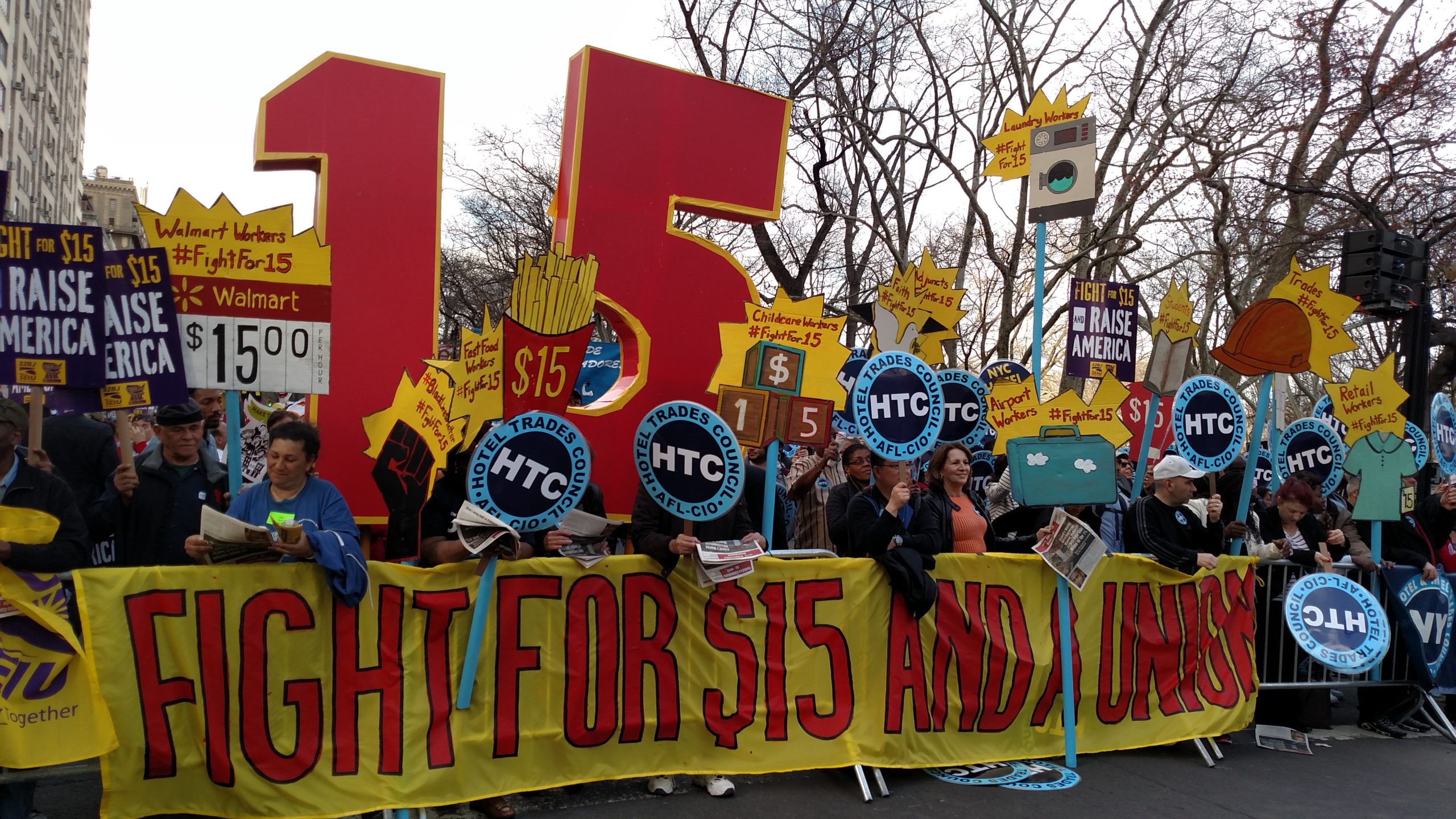Over the past decade or so, wealth inequality has become one of the most salient topics in politics, culture and economics.
Frustrations around wealth inequality have led many to compare the current era we’re living in to a new Gilded Age.
Noah Smith, an economic blogger who runs the newsletter Noahpinion, recently published a piece calling this narrative into question, in part by noting that wealth inequality has actually been on the decline in some ways.
He joined the Texas Standard to talk about the data, but also some alternative ways of thinking about meeting economic goals. Listen to the story above or read the transcript below.
This transcript has been edited lightly for clarity:
Texas Standard: A lot of folks in the Lone Star State feel the inequality, especially as they struggle to make ends meet with inflation, the downsizing of goods and services, salaries not keeping up. What makes you say that inequality may be on the decline, especially now?
Noah Smith: Well, a lot of inequality comes from the stock market, right? Rich people own all the stock. And so when the stock market goes down, you see a natural decline in inequality. And that’s a big part of it. Especially tech stocks went down. And the richest people in the country, they all started their own companies and their wealth is just the stock of their own companies. You know, like Elon Musk owns a lot of Tesla. And so if that goes down, they lose a lot of money. I think Elon Musk lost $130 billion this year or something like that.
Well at the same time, the impact on someone like Elon Musk, when he loses in the stock market, is far different compared to when something far less monumental happens. So I’m thinking about the practical aspect of this. Are we feeling any of these effects if indeed there is a decline in inequality?
Well, that’s the thing: not really. Because to the normal person it doesn’t matter whether Elon Musk loses $1 billion. So what’s much more important for most normal people is their wages – and so we’ve seen some positive developments here, too. We saw in the late 2010s, wages for the people in the bottom half of the distribution go up. We saw them go up more strongly than wages for people at the top. And then since the pandemic ended, we’ve had this inflation which has been reducing people’s real wages. Wages have been going up, costs have been going up higher. So the cost of living is going up. But for people on the bottom of the distribution, their wages have still stayed ahead of inflation. They’ve been going up faster than inflation, while it’s the middle class who’s losing out. So, people in the working class and poor are getting a break here. But everyone else has been hurting from this inflation.
Well, given that, what are you saying about wealth inequality being on the decline? That it is something that’s temporary, the result largely of market conditions, or are you suggesting something bigger about the state of inequality and where we’re headed?
Well, that’s a great question. And the answer is that I wouldn’t pay that much attention to whether the stock market goes up and down here. I would focus on wages, especially at the lower end. In the late-2010s, we had a lot of people increasing minimum wage. You had the Fight For $15 in Seattle – that was successful and you had a bunch of other cities increasing minimum wage. And in those places, wage inequality fell and it didn’t really hurt the people at the top. And I think the solution is just to keep the ball rolling on that.
The FTC talked about banning noncompete agreements. So if you work at Jimmy John’s, why should you have to sign a thing saying that if you get fired or quit, you won’t go to work for any other sandwich company? That’s insane. And so it’s workers’ ability to switch between jobs that often gets them better wages because they can sort of have a bidding war. If you cut that off with some kind of noncompete agreement, then they’re just stuck. And that means they have to accept whatever wage their current employer basically wants. And so that’s just part of this general effort to increase wages for people on the bottom end, you know, make life easier for those people.
But again, sort of a reality check from the ground: I think a lot of people, if they’re working a low wage job – behind the counter at a restaurant or something like that – they’re not signing non-compete agreements. You know, minimum wage jobs – that’s not really going to affect them, no?
10 to 15 years ago, you’d be absolutely right. I use Jimmy John’s as an example because that is a famous real example. We’re talking about fast food restaurants. We’re not talking about like, you’re working on the latest semiconductor technology, fancy research stuff. And I’ll tell you what, Texas is one of the worst on this. Texas just loves noncompete agreements. And this is probably one reason why California has managed to retain leadership and dominance of the tech industry – is because they don’t enforce a noncompete. They can make you sign noncompete in California, but it’s not legally binding. No one can ever do anything to you. In Texas, they can.
Noah, I’ve read your post and found it really interesting and compelling. But at the same time I sort of read it as a critique of what has become in popular parlance, especially among a lot of progressive folks, “late stage capitalism.”
I don’t know about late stage capitalism because I don’t think capitalism is ever going away. You know, raising wages for workers is sometimes about increasing capitalism and things like noncompete agreements – that’s not really very capitalistic to have people sign agreements saying who you can and can’t work for. I think we’re moving away from this idea that we should be motivated by ideology. And so what we really care about should be goals. You know, goals like get people cheap housing. And I think that kind of thinking is slowly taking over. That goal-oriented thinking is taking over from the ideology-oriented thinking that was common last century.















